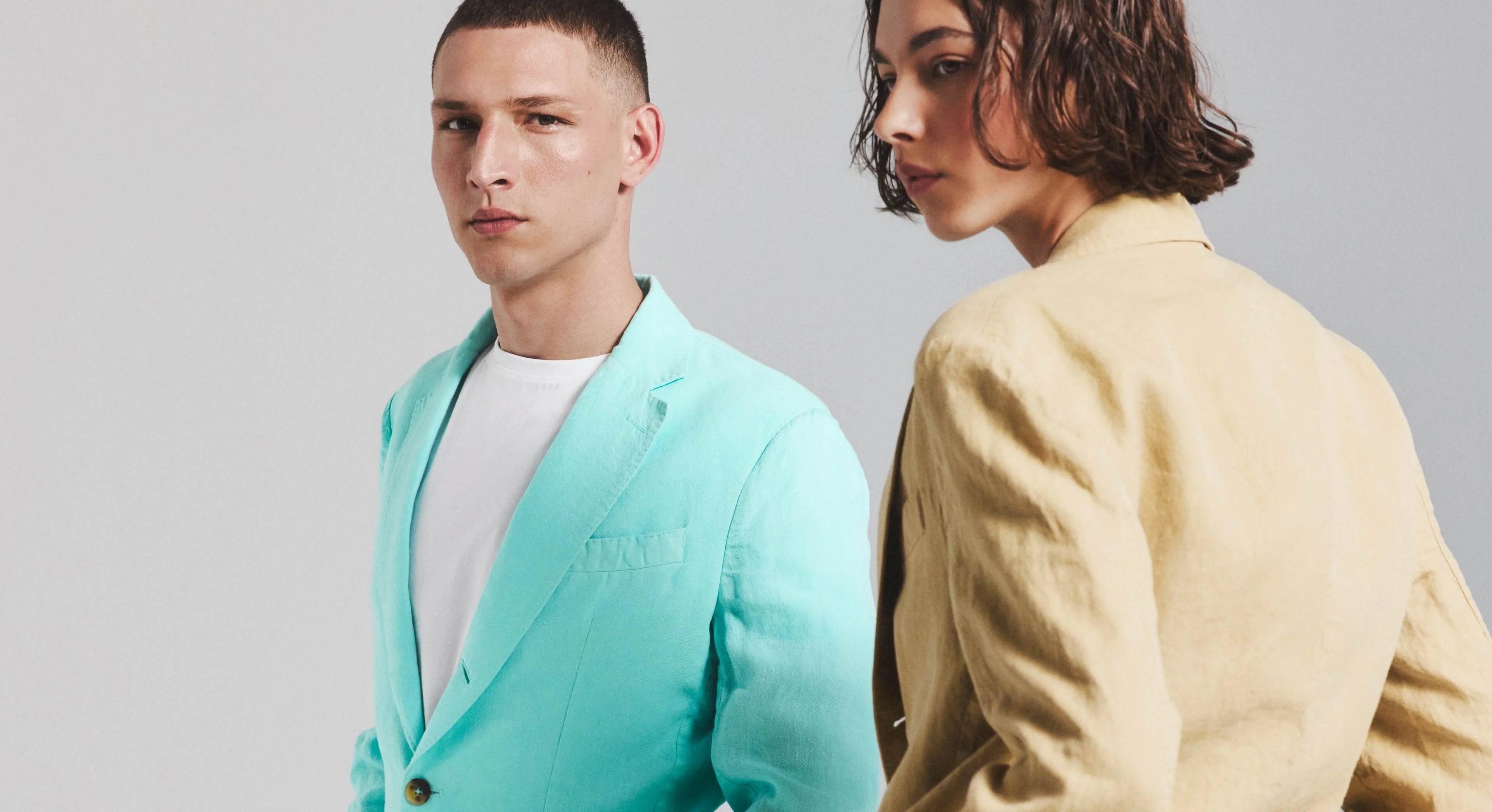Fashion is undergoing an unstoppable transformation toward consciousness. In the Spring-Summer 2025 season, brands are betting on sustainable fabrics not only for innovation and style but also out of responsibility to the planet. Organic, recycled, or regenerative cotton, recycled polyester, low-impact processes, and plant-based materials like Piñatex take center stage in a new way of dressing with purpose.
In this article, we tell you which responsible materials are most relevant at the moment, how they are used in clothing, footwear, and accessories, and which brands are leading the change.

ESD MAGAZINE
By: ESD Team
What types of sustainable cotton exist?
Cotton is one of the most used fabrics in fashion, but also one of the most demanding environmentally. That is why many brands have started working with more respectful versions of the material. These are the main ones:
- Organic cotton
Grown without pesticides or toxic fertilizers, organic cotton protects both the environment and those who work with it. It is soft, durable, and increasingly common in collections from brands like G-Star RAW, Pepe Jeans, and Tommy Hilfiger.
- Recycled cotton
Obtained from textile scraps or used garments, it allows giving a second life to existing materials. Ecoalf and Camper are strong advocates of this circular approach, applying it in urban clothing and casual footwear.
- Regenerative cotton
It goes one step further: not only does it reduce the impact, but it reverses it. This cotton is grown with agricultural techniques that regenerate the soil and capture carbon. It is the option chosen by brands like Tommy Jeans, GANT, and G-Star, combining style with natural regeneration.
- Eco-friendly cotton
Very similar to organic cotton but with a special focus on reducing water usage and sustainable farming practices. G-Star again stands out as a pioneer in this category.
Recycled polyester: technical, urban, and responsible fashion
Recycled polyester comes mainly from PET plastic bottles or textile waste. Its great advantage is that it combines durability, lightness, and a lower environmental footprint. We find it more and more in technical, sports, or urban garments, and it is one of the protagonists in collections from Emporio Armani, BOSS, and Calvin Klein Jeans. Using recycled polyester means reducing dependency on oil, limiting waste, and shaping functional pieces with a refined aesthetic. Ideal for those who do not give up either design or sustainability.

Levi’s Water
Did you know that a single pair of jeans can require thousands of liters of water to produce? Aware of this, Levi’s developed its Water
The result: jeans, shirts, and jackets that maintain their iconic style with a lower impact. An initiative that shows that sustainability can also be a brand symbol.
Piñatex®: the plant-based material that's setting a trend
Piñatex® is an innovative fiber made from discarded pineapple leaves. It is 100% plant-based, biodegradable, and cruelty-free, making it a real alternative to traditional leather. Ecoalf has made it a hallmark in its line of vegan accessories and footwear, demonstrating that sustainability and cutting-edge fashion can go hand in hand.
Sustainability is not an aesthetic. It is an attitude. A way to consume less, choose better, and think long-term. At Esdemarca we work with brands that are rewriting the rules of fashion to make it more respectful, without giving up design or authenticity. The fashion of the future is already dressed today. And you can be part of the change.
Image credits: Esdemarca, ECOALF



Esdemarca · Copyright © Fusion Lab, S.L. 2026 B66138827 · Calle Recerca, 1, 08850 Gavà (Barcelona), Spain
Customize cookies
By accepting analytics cookies, third parties such as Google and other providers will have access to certain browsing data. View full list of providers
An exclusive gift to get you started:
Sign up and enjoy a 5.00 € welcome discount on your first order.
Valid on purchases over 50.00 €. Only for new sign-ups from this window.
CONFIRM YOUR SHIPPING DETAILS:

